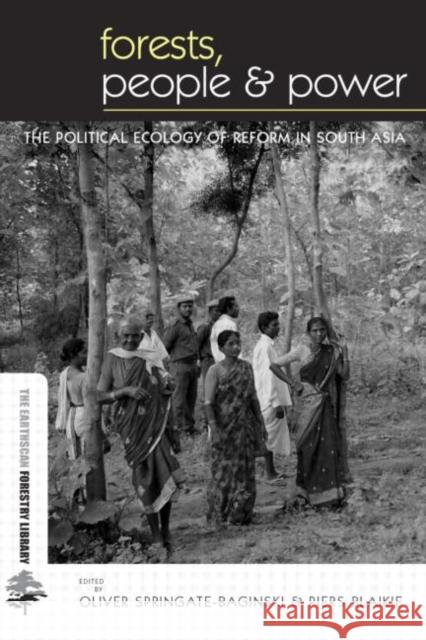Forests People and Power : The Political Ecology of Reform in South Asia » książka
Forests People and Power : The Political Ecology of Reform in South Asia
ISBN-13: 9781844073474 / Angielski / Twarda / 2007 / 394 str.
Forests People and Power : The Political Ecology of Reform in South Asia
ISBN-13: 9781844073474 / Angielski / Twarda / 2007 / 394 str.
(netto: 673,60 VAT: 5%)
Najniższa cena z 30 dni: 654,86 zł
ok. 22 dni roboczych
Bez gwarancji dostawy przed świętami
Darmowa dostawa!
Forests and forest lands around the world are a source of livelihoods for hundreds of millions of people. Contests over control and use of these forest resources are increasingly acute, and nowhere are they more intense than in South Asia. Although state forest administration is recorded in the earliest historical texts of the region, since the colonial period forest departments have extended and intensified scientific forest management in order to generate greater flows of timber and revenue, constructing policy in terms of colonial and later national development rather than as serving the public good. The impact on the use local people make of the forest for their livelihoods has been so negative that persistent civil unrest has ensued in many areas.
In recent decades participatory approaches to forest management have been introduced around the world, and this book assesses their implementation in the highly politicized environments of India and Nepal. The book critically examines the policy, implementation processes and causal factors affecting livelihood impacts. Considering narratives and field practice, using data from over sixty study villages with over one thousand household interviews, as well as key actors in policymaking at all levels, the book demonstrates why particular field outcomes have occurred and why policy reform often proves so difficult.
Research findings on which the book is based are already influencing policy in India and Nepal, and the research and analysis have great relevance to forestry management in a wide range of countries











